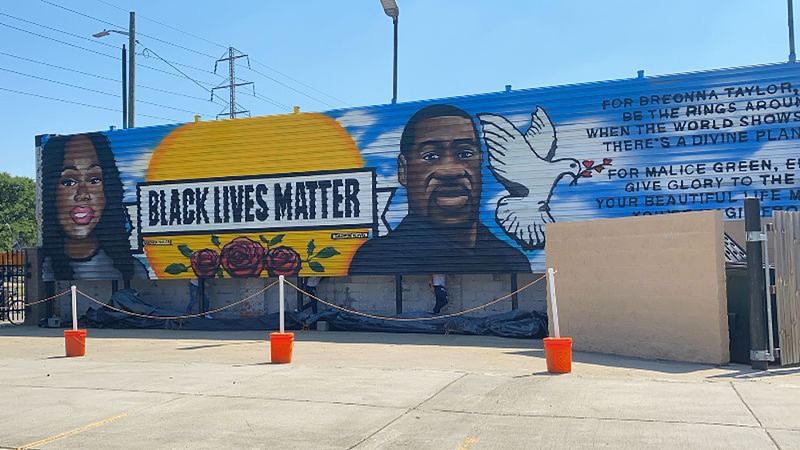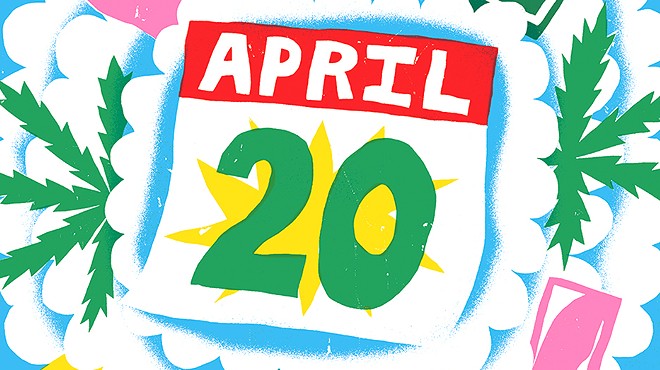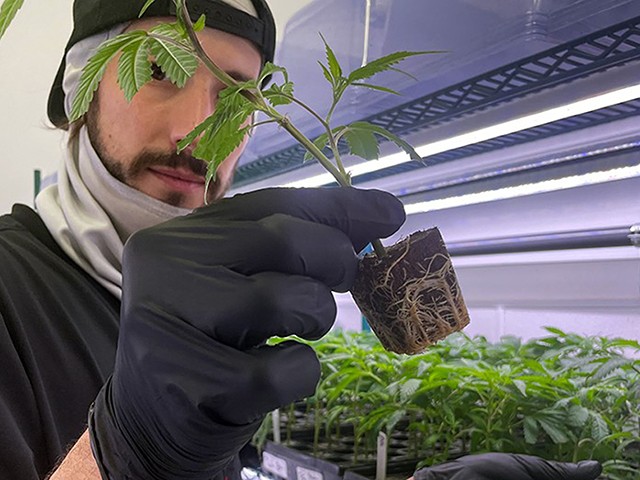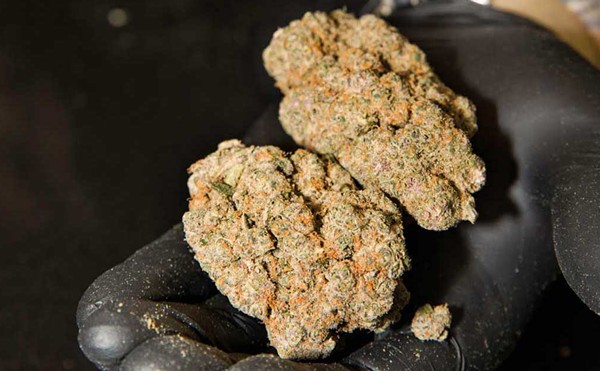The recreational marijuana industry is booming in Michigan, exceeding $1.1 billion in annual sales and generating more than $100 million in new taxes a year.
But in Detroit, the state’s largest city, not a single dollar has been made since adult-use recreational cannabis sales became legal in December 2019.
And it could be many more months before Detroit begins to reap benefits from the lucrative industry.
Last week, Detroit City Council finally approved an ordinance that will allow recreational marijuana businesses to open in the city. But not everyone is celebrating.
If all goes as planned, which rarely happens in Detroit or in the marijuana industry, new recreational cannabis businesses won’t begin opening until late this year or early next year. That’s three years after the first recreational businesses opened in other towns and cities, which have received millions of dollars in new tax revenue.
In total, 110 communities in Michigan have at least one recreational dispensary.
Dozens of them are in Detroit’s suburbs, and many inside the industry say there may already be too many dispensaries in the region. In other words, new dispensaries that open in Detroit will face extraordinary challenges to compete with each other and the suburbs.
“Detroit already missed out and lost those customers,” Jimmy Caudill, director of sales at The Reef, a medical cannabis dispensary on Eight Mile Road in Detroit, tells Metro Times. “All the dispensaries surrounding the city have had a chance to capitalize on (Detroit’s recreational ban) and grab new customers. It’s going to be harder for shops to regain those people.”
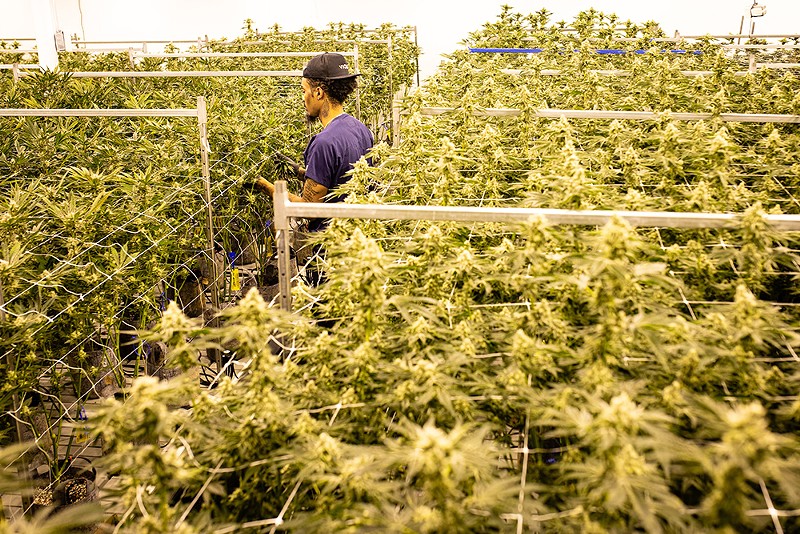
From first to last
More than a decade ago, Detroit was at the forefront of the medical marijuana industry. Within two years of voters approving medical marijuana in 2008, dozens of dispensaries began cropping up in Detroit, far more than any other community in Michigan.Many of those businesses are still around today, but they are struggling. In total, Detroit has more than 70 medical cannabis dispensaries.
Now that recreational marijuana is legal, fewer people are getting medical cannabis cards because they cost money and take time to obtain.
The number of active medical cards fell from more than 264,000 in 2020 to fewer than 232,000 so far this year, a 12.2% decline, according to the state’s Marijuana Regulatory Agency (MRA).
Medical cannabis sales fell even harder, from $38.1 million in February 2021 to $26 million in February 2022, a 32% drop.
That has spelled serious trouble for the medical cannabis dispensaries in Detroit that have hung on, waiting for the city to allow recreational sales.
“The medical industry is dying,” former NBA player Al Harrington, who opened Viola Brands cannabis in southwest Detroit, tells Metro Times. “A lot of people come to Detroit for business opportunities, and they have to go to border towns to purchase cannabis. It’s killing all the current medical operators in the city. It’s putting a lot of pressure on their businesses because they are losing customers every day.”
In the early days of recreational marijuana sales, medical cannabis was far more inexpensive. That’s not the case anymore.
The average cost of an ounce of medical flower in February 2021 was $229.22, compared to $267.20 for recreational flower during the same time period, according to the MRA. By contrast, the average cost of an ounce of medical flower in February of this year was $144.18, compared to $160.10 for recreational flower.
Without recreational marijuana sales, the cash-strapped city continues to miss out on millions of tax dollars a year. With a 10% excise tax, recreational pot sales raised more than $111 million for communities, schools and roads.
In March, the state doled out $56,400 to communities for each dispensary within their borders. There is no excise tax for medical marijuana.
“The funding provided directly to local governments — and the thousands of jobs created across the state — show that Michigan is leading the way in the cannabis industry,” MRA Executive Director Andrew Brisbo said in a statement.
Not so in Detroit, however.
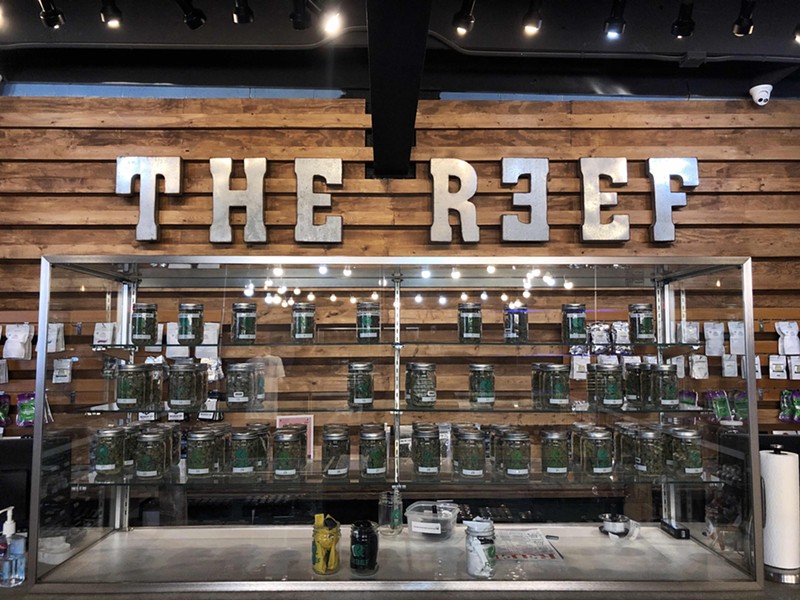
Opting out
The Detroit City Council shocked the cannabis industry in November 2019 when it passed a last-minute ordinance preventing recreational businesses from opening.The reasoning was well-intentioned: Detroit wanted to ensure that its longtime residents, who have been disproportionately impacted by the war on drugs, could be given priority to get involved in the industry before wealthy outsiders saturated the market. At the time, council members said the goal was to create new regulations by January 2020.
Instead, it took the council more than a year to draft an ordinance that would give licensing preferences to longtime Detroiters. But in June 2021, a federal judge ruled that the ordinance was probably unlawful because it “gives an unfair, irrational, and likely unconstitutional advantage to long-term Detroit residents over all other applicants.”
The council returned to the drawing board and took nine more months to approve a new ordinance, which creates two tracks for licenses so that “equity” and “non-equity” applicants aren’t competing with each other.
Under the new ordinance, a total of 100 retail licenses will be available, half of which will be reserved for social equity applicants.
“I am thankful that Detroit will finally join the 23 municipalities in Michigan that have allowed adult-use cannabis licensing within its borders,” the ordinance’s sponsor, Council President Pro Tem James Tate, said in a statement. “But the goal has never been to simply have licensing within the city, but to create policy that works to address the inequities that so many Detroiters have experienced trying to pursue an opportunity in this industry.”
Trouble is, Detroiters are going to have a tough time making money this late in the industry, cannabis insiders say.
“It’s fantastic that Detroit is moving forward and recognizes that while they were on the forefront of the industry a few years ago, they have fallen behind,” Mike P. DiLaura, chief of corporate operations and general counsel for House of Dank in Detroit, says.
“Detroit has really missed the mark. It’s really unfortunate.”
DiLaura believes the new ordinance is unlawful and will result in more lawsuits because he says the social equity component once again goes too far.
“With good intentions, the city is acting with economic protectionism,” he says. “While morally noble, it’s ultimately not lawful.”
As more time passes, opportunities for the city and its residents will continue to dwindle, cannabis insiders caution.
“The market is kind of saturated at this point,” Caudill says. “A lot of these dispensaries have the same products. It’s like Meijer and Kroger selling the same produce.”
At Viola, a medical cannabis dispensary in Detroit, Harrington hoped to create job opportunities for people of color. But getting stuck in the shrinking medical cannabis industry, he can’t hire more Black Detroiters until the city starts issuing recreational licenses.
“If we’re going to compete, we need to get to market now,” Harrington says. “At this point, it’s getting embarrassing.”
Stay connected with Detroit Metro Times. Subscribe to our newsletters, and follow us on Google News, Apple News, Twitter, Facebook, Instagram, Reddit, or TikTok.

